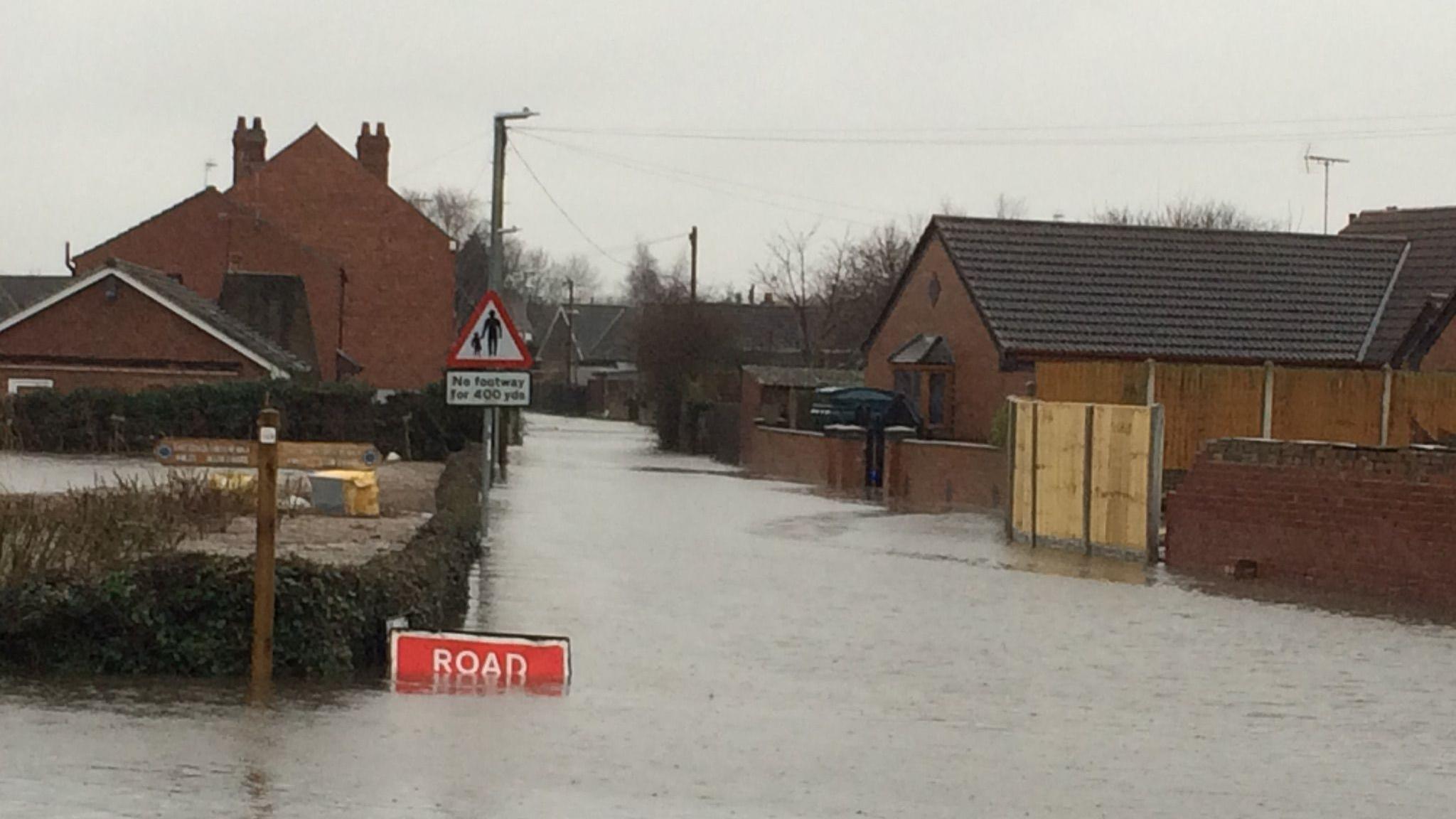Villagers fear return of devastating floods
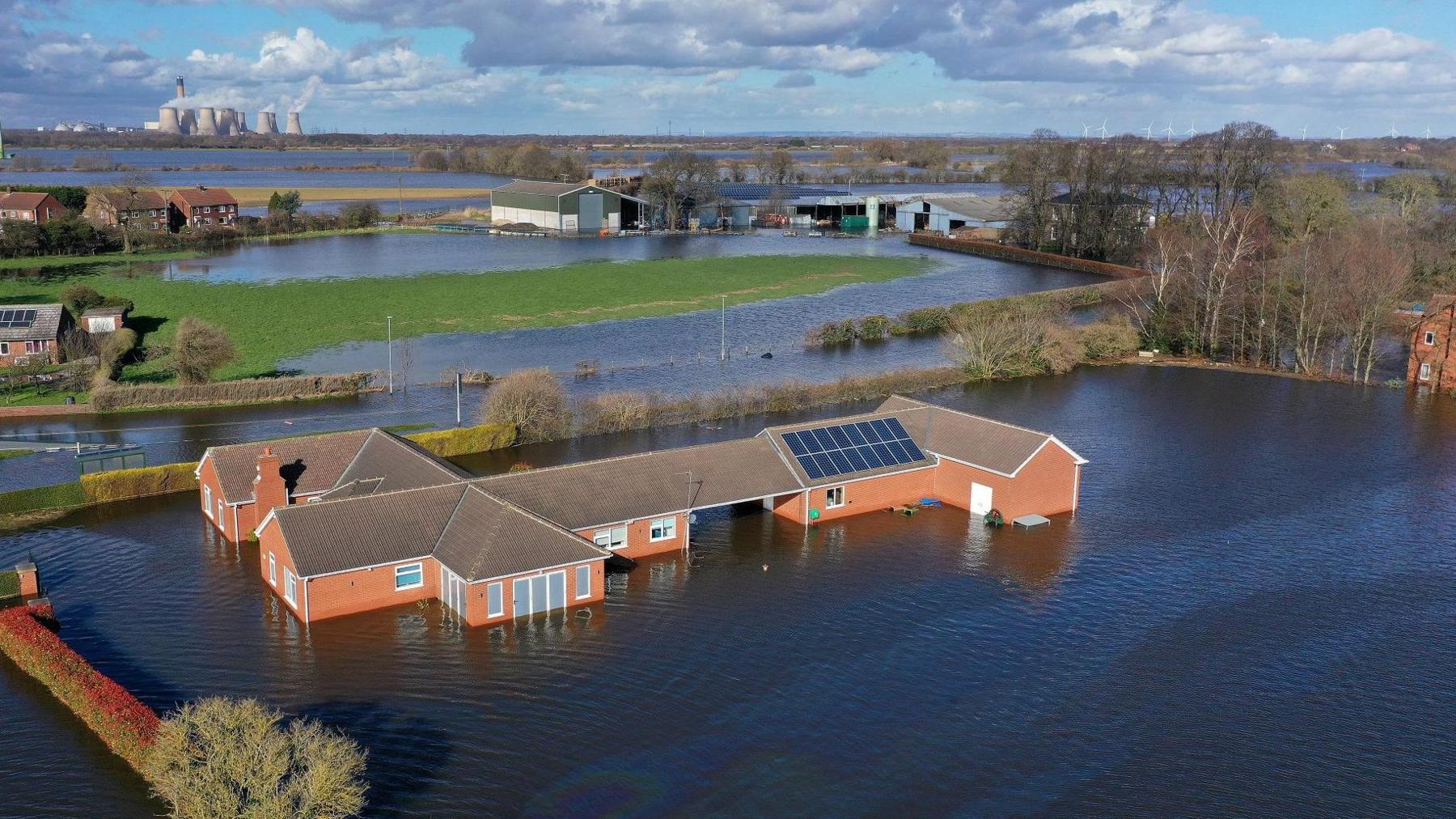
Flooding in East Cowick in 2020, after the River Aire overtopped its banks
- Published
Villagers say they still feel vulnerable five years after flood water from a nearby river wrecked their homes.
The River Aire overtopped its banks in February 2020, inundating properties in East Cowick, East Yorkshire.
A new independent review, commissioned by the Environment Agency (EA) and published on Thursday, external, has set out plans to better protect homes using practical and affordable measures, such as flood doors, raised electrics, and permeable paving.
But the Reverend Canon Eleanor Robertshaw, of nearby Snaith Priory, said there was "a massive fear" among residents. "It's likely to happen again," she added. "There's nowhere else for the water to go."
More than 6.3 million properties in England are at risk of flooding, according to the EA.
In 2020, nearly 100 homes and businesses were affected in East Cowick and neighbouring Snaith. The priory became a rest centre for three weeks, catering to flood victims and those who were "frightened or traumatised".
Canon Robertshaw said the psychological impact of flood warnings still lingered.
"I think everyone is really prepared, but every time there's a flood warning, everything comes back to people," she added.
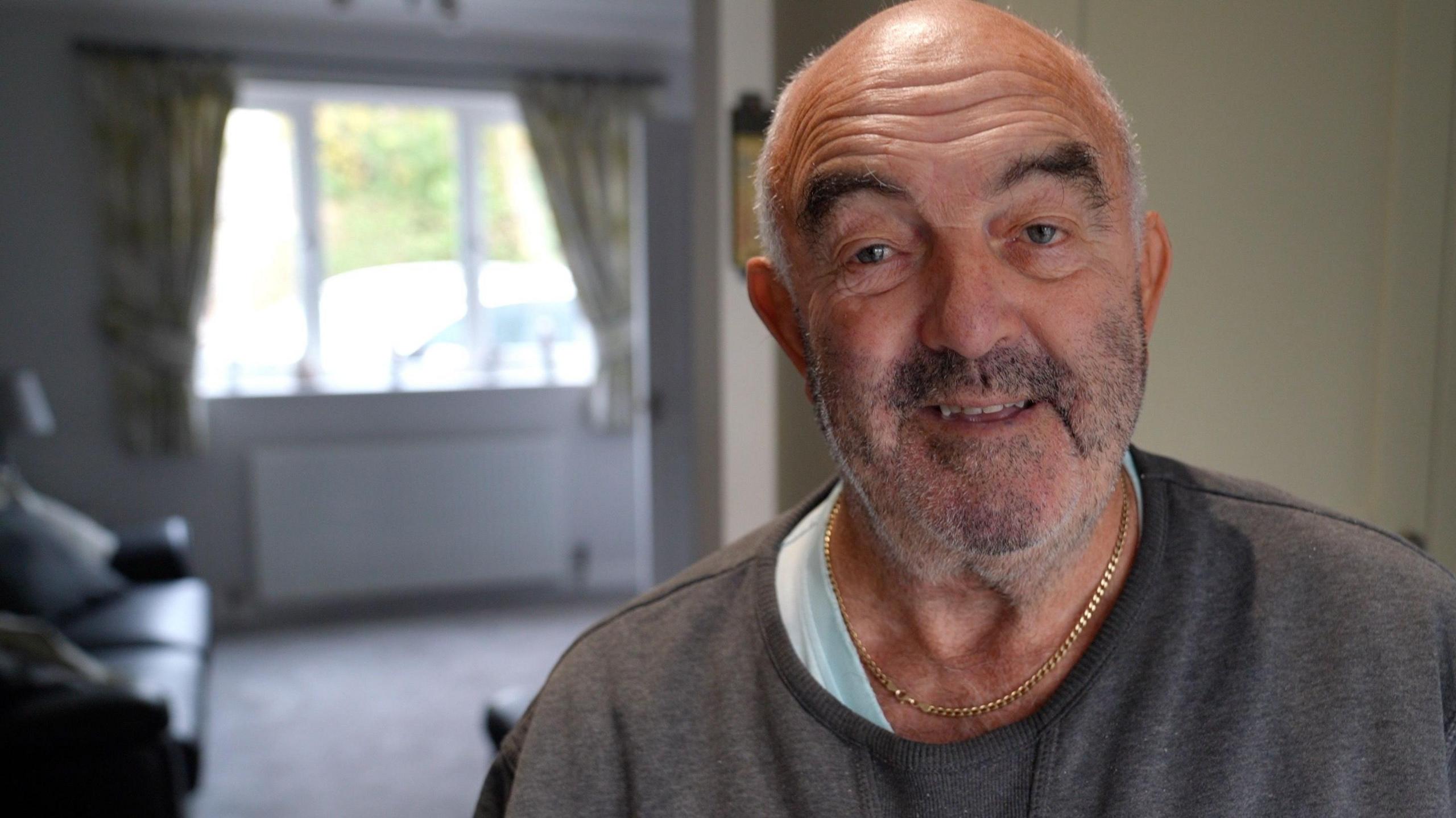
Barry Lamb says the smell is the worst thing about being flooded
Barry Lamb, who lives in East Cowick, vividly remembers the moment he saw the damage inside his home.
"When we first walked through the door and looked at the carnage, we just walked back out and started laughing," he said. "It was either that or cry."
The water reached the kitchen worktop.
"When it came to cleaning up, everything had to go, all the plaster was off the walls," he added.
But when asked if he had any faith in flood protection plans for the future, the 78-year-old said he did not.
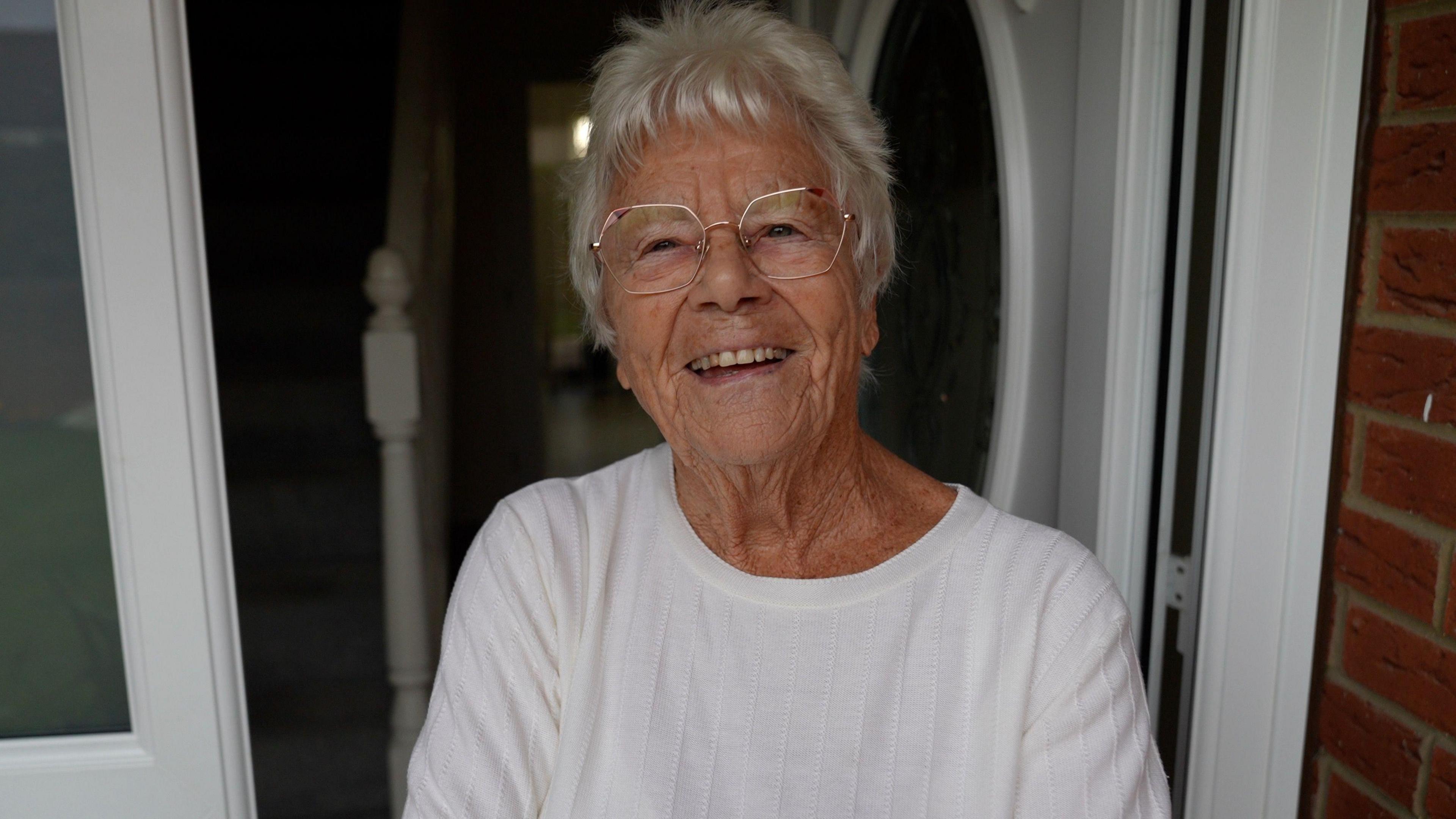
Betty Smith says she was fortunate to be insured
Betty Smith, 86, also from East Cowick, recalled the overwhelming damage to her two-storey home and the helplessness she felt.
She described the surreal sight of her furniture being lifted by the flood water.
"The sofa was floating to the ceiling. Every cupboard was just soaked, powder all over because I hadn't a chance to get that out.
"We took things upstairs, but we couldn't carry everything."
Betty and her husband were out of their home for six months and now have a flood plan in place.
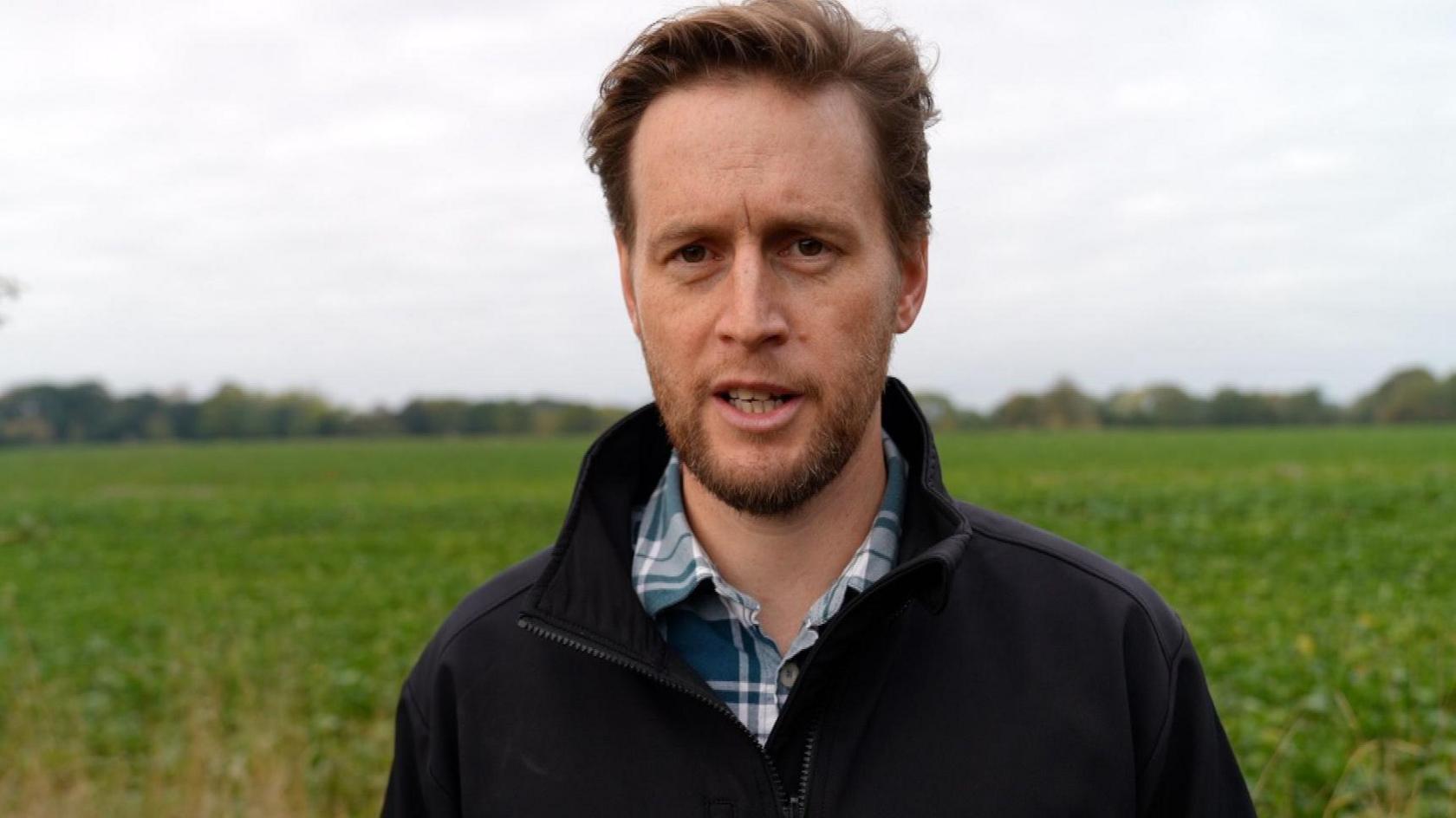
Tom Pagett is urging people to assess their flood risk
Tom Padgett, of the EA, said the agency was funding 108 flood schemes across Yorkshire.
"On the River Aire and around Goole, we're tackling flood risk where it occurs, but also looking upstream at natural flood management to slow the flow of water."
He said only about half or people had checked their flood risk.
"Ultimately, it's vital that people understand their own flood risk and make a plan. That mitigation can really help you out if the worst happens," he added.
In a effort to strengthen national flood resilience, the government has announced that deprived communities will receive new flood defences, external more quickly.
The initiative, unveiled by the Department for Environment, Food and Rural Affairs, aims to prioritise areas where residents are most vulnerable to the impacts of flooding and least able to recover.
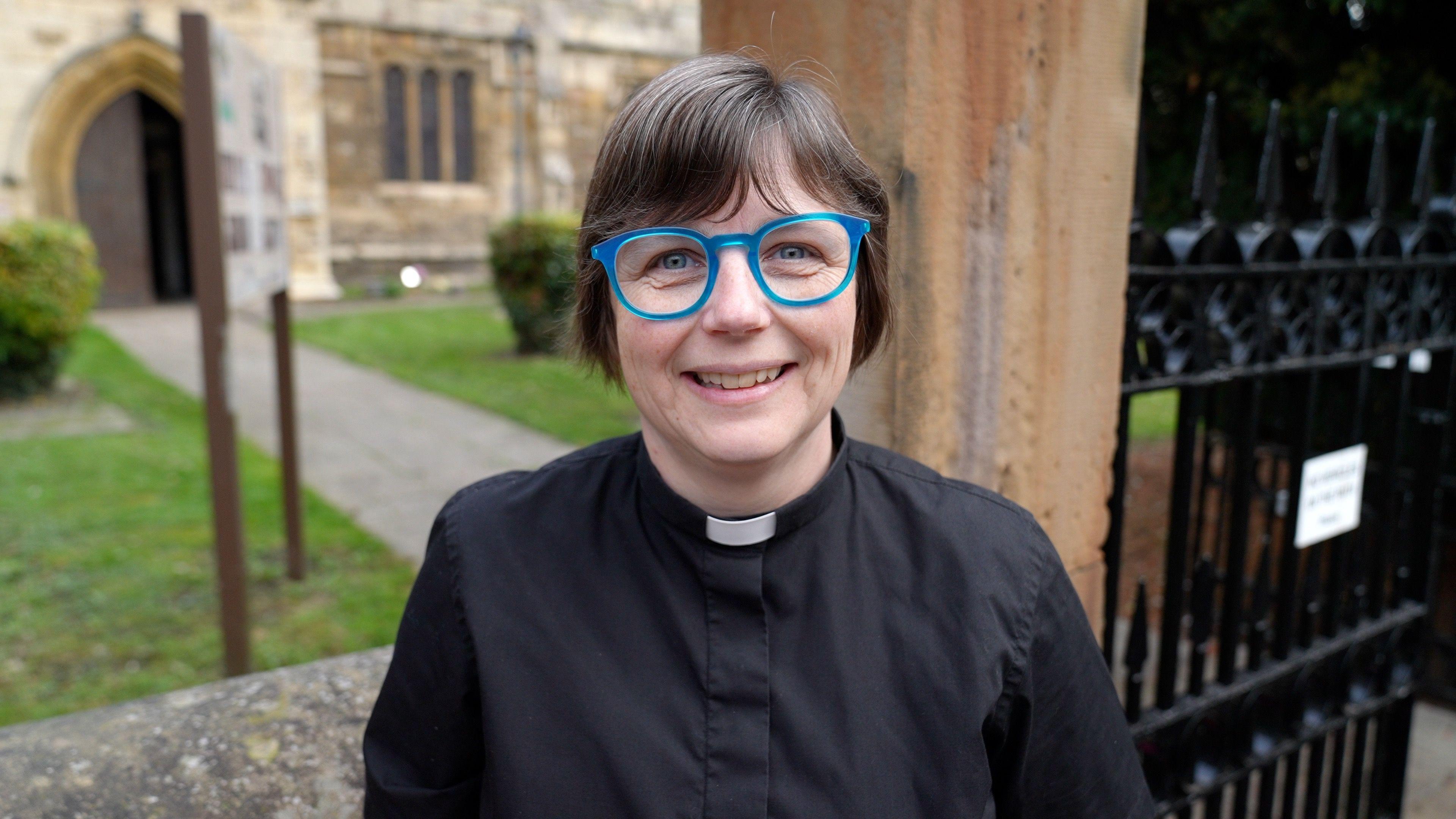
Canon Robertshaw outside Snaith Priory
Emma Hardy, the flooding minister and MP for Hull West & Haltemprice, said no community should be "left behind when it comes to flood protection".
She added: "This is about fairness, urgency and making sure help reaches those who need it most."
And if the worst happens in East Cowick and Snaith, Canon Robertshaw said the priory would serve as a refuge again.
"It's an amazing feat of the medieval builders that they knew where to build," she added.
"It's very unlikely Snaith Priory would ever get flooded – and it will always be here for people in times of need."
Listen to highlights from Hull and East Yorkshire on BBC Sounds, watch the latest episode of Look North or tell us about a story you think we should be covering here, external.
Download the BBC News app from the App Store, external for iPhone and iPad or Google Play, external for Android devices
Related topics
- Published15 October
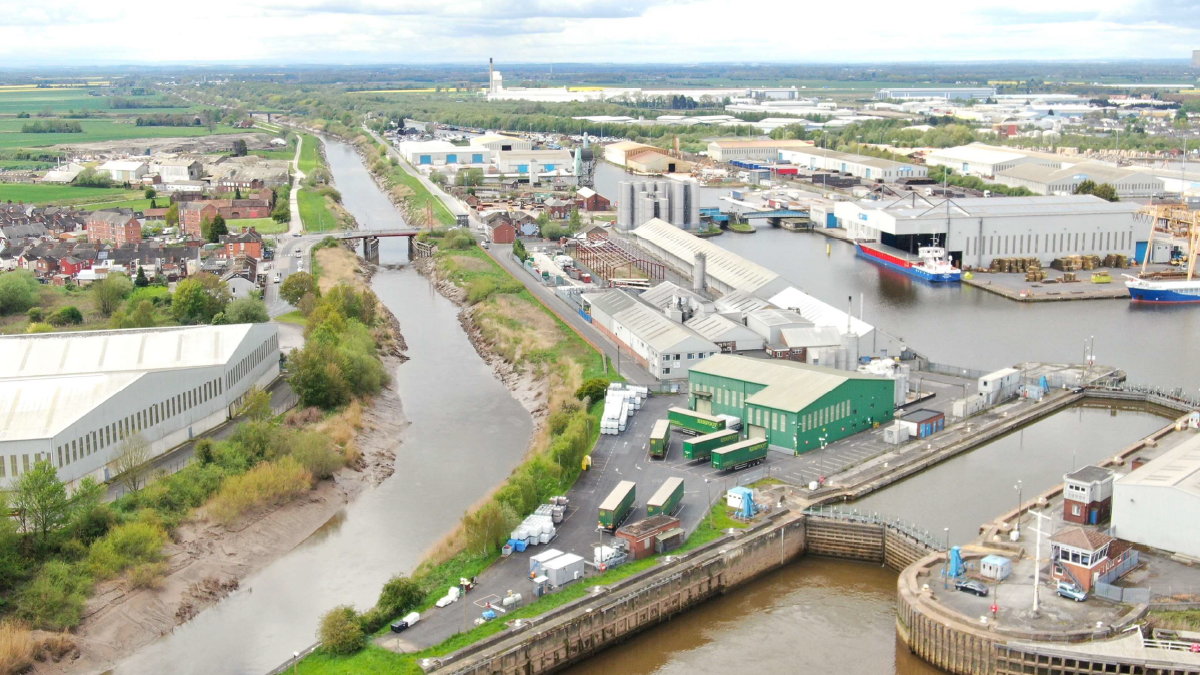
- Published13 October
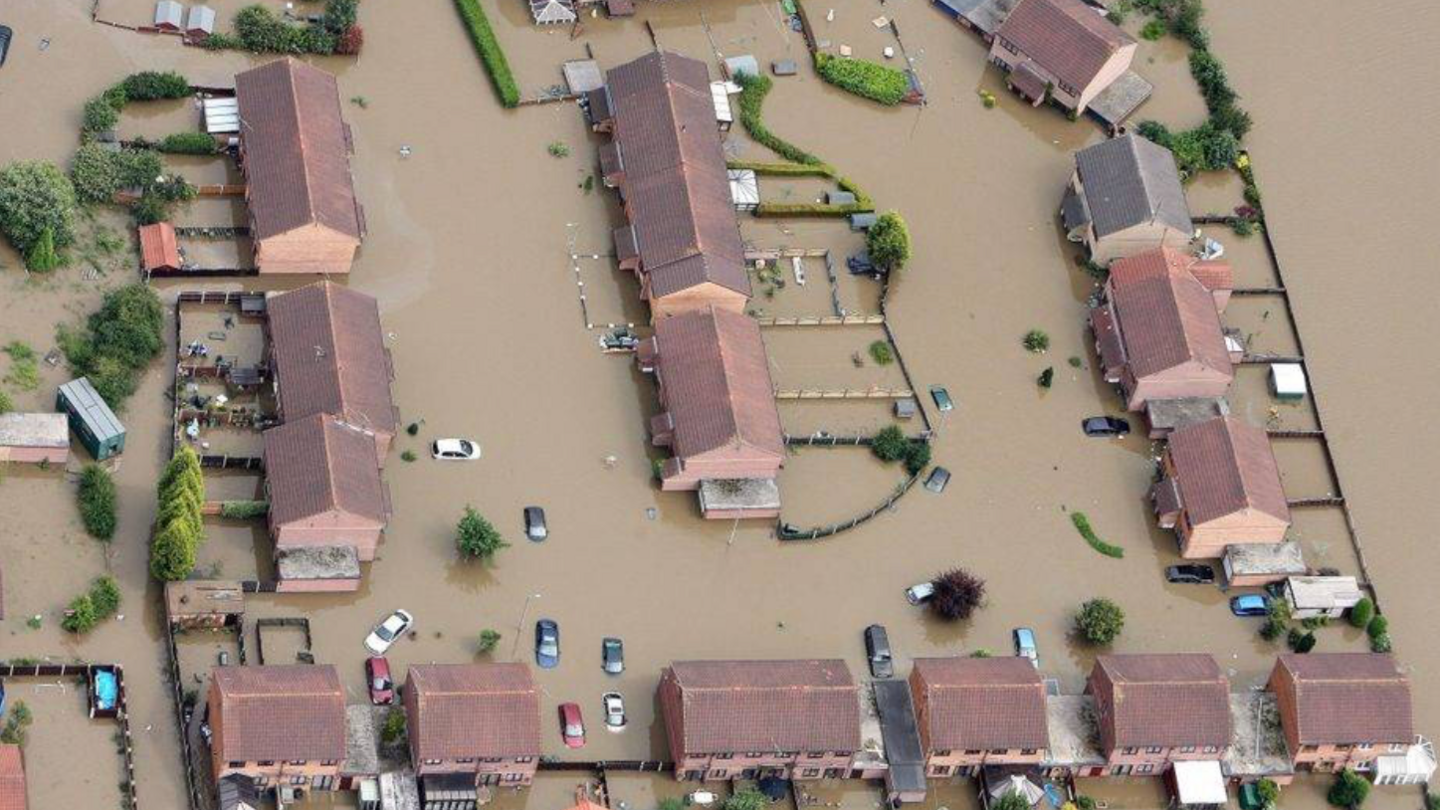
- Published21 December 2020
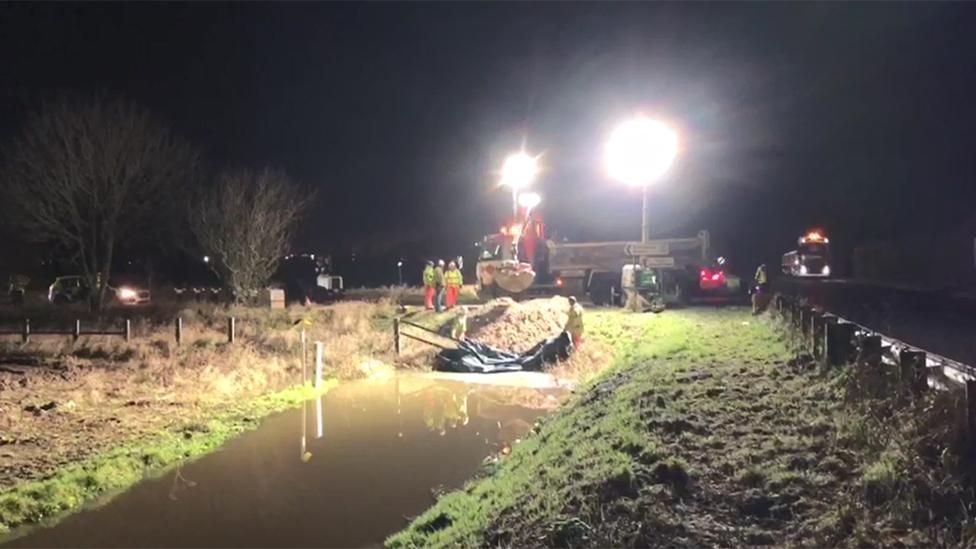
- Published20 March
